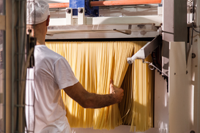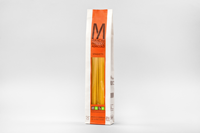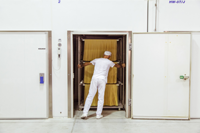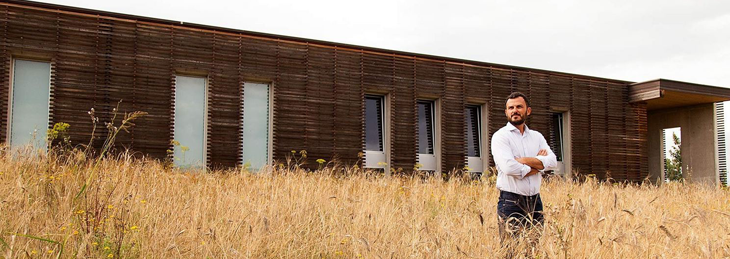
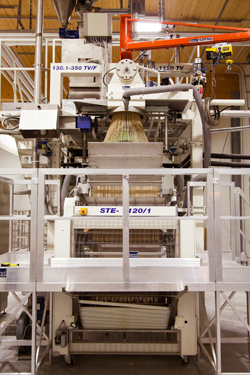
"A Pasta factory between tradition and innovation".
This is what Massimo Mancini, owner of the same name factory, says about his Company, a jewel of architecture on the hills of Marche Region, whose wheat, grown in the fields around it, is used to produce Mancini’s Pasta. Classic, whole or turanico wheat, Mancini’s pasta is immediately recognizable for its golden yellow colour, rugged and porous characteristics and its aroma of ripe wheat. All these features are guaranteed by the artisanal production inside a pasta factory where nothing is left to chance, thanks to a customized plant whose variables, such as temperature, humidity, pressure, are digitally-controlled by systems that can reach previously unthinkable precision qualities. This plant was tailor-made by Storci. We interviewed Massimo Mancini, who told us about the secrets of this long partnership that has been lasting for ten years.
How do you describe this synergy with Storci?
Undoubtedly positive. Storci has been proving to be professionally prepared and attentive to our needs, even when facing the most experimental proposals. These attitudes are obviously very important and take on a more relevant meaning for us, as we are a young Company indeed.
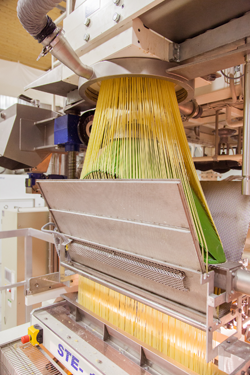
You did buy Omnia, our multi-product line that allows the production of short, long and special pasta using a unique machinery, guaranteeing maximum flexibility and compactness. Which advantages have you observed in your production? Omnia line and its flexibility have well combined with the needs of a young pasta making factory such as ours. We often notice the astounded look on the visitors’ faces when we explain that we use one plant only to produce all our shapes. This aspect aside, Omnia allows us to optimize our flow, with no disruptions in our production routine. A simplified management results in a better quality of the work of our Staff and, subsequently, in a higher quality of our pasta.
Your Company is renowned all over the world and your pasta has become synonym for quality. What are your plans for the future? The experience gained during our travels around the world, tells us that durum wheat semolina pasta is a natural product although mostly unknown for its peculiar aspects. Meanwhile, it literally “leaves its mark “ if it is top-notch. Our challenge as agricultural pasta factory is twofold. Firstly, we need to make the most of our production of the raw material which is grown locally. Secondly, we need to maximise awareness of our product through its history and by detailing its characteristics. We still have a long way to go, but we can count on a motivated, young and skilled team.
